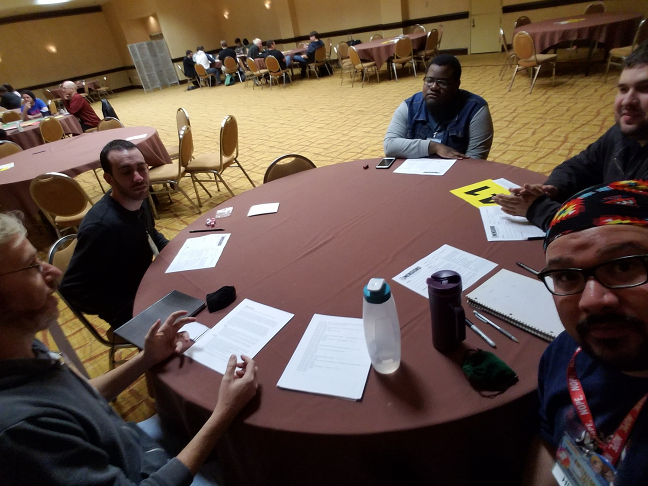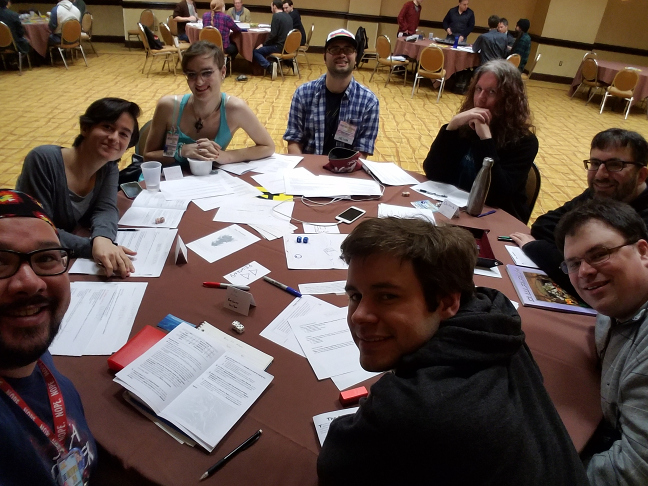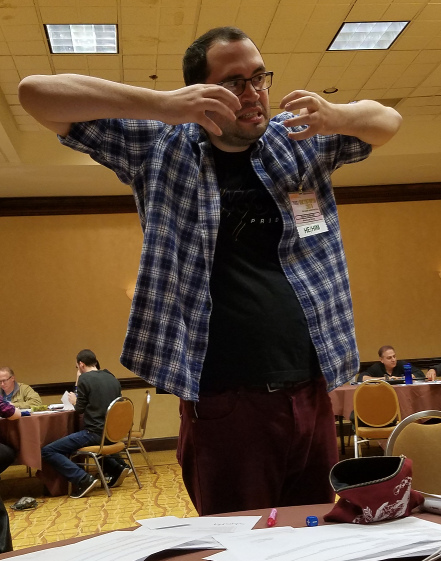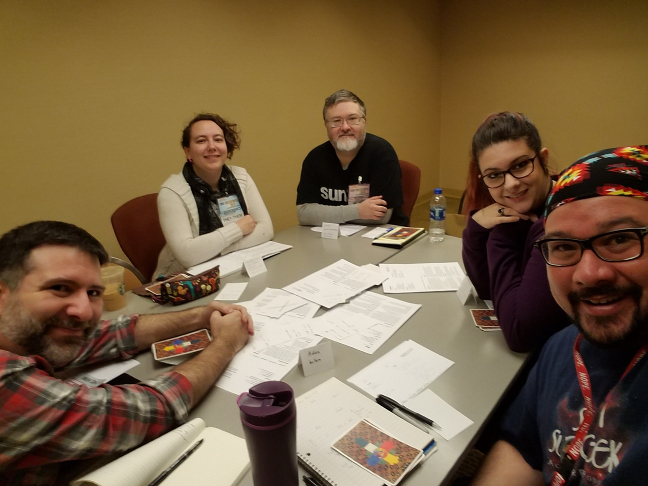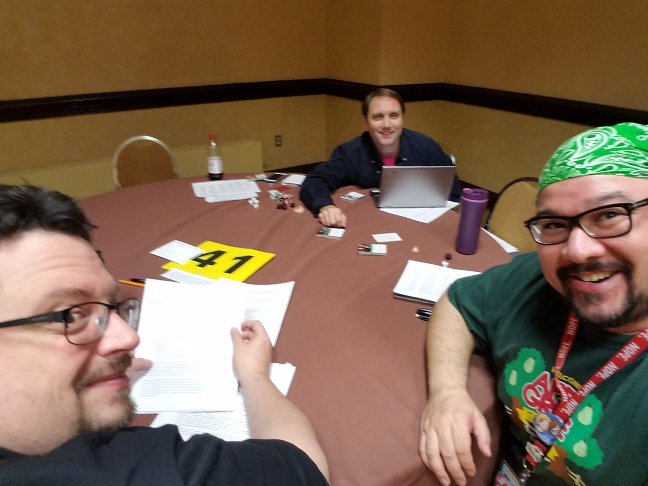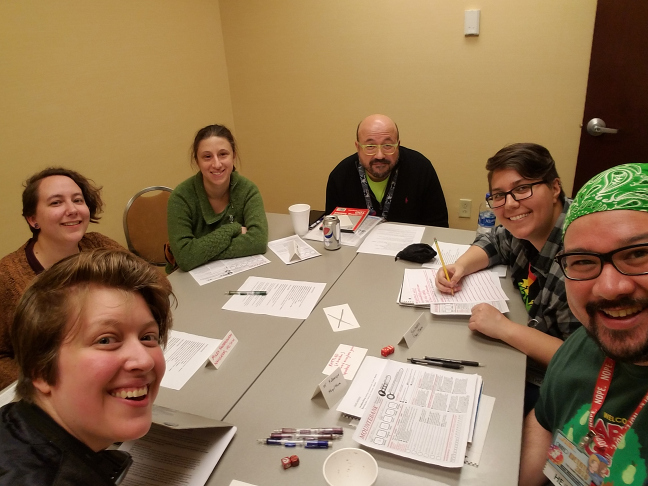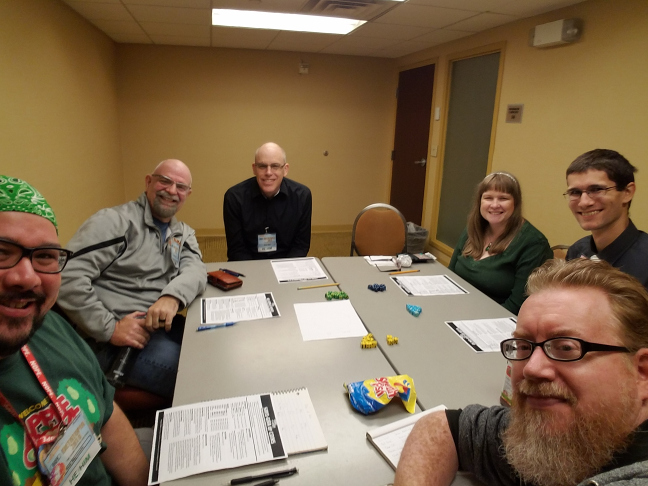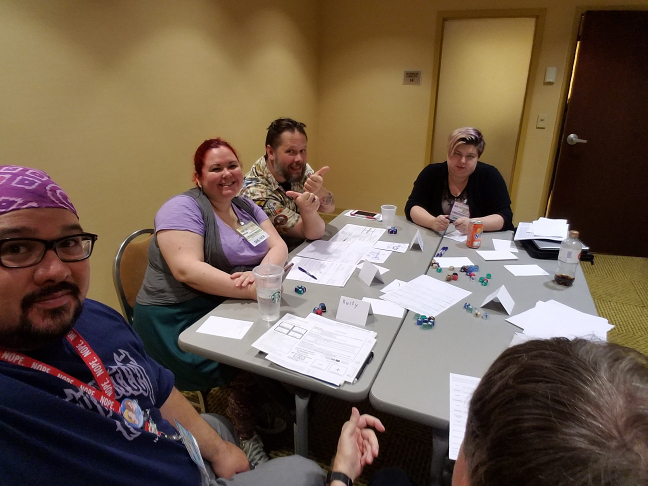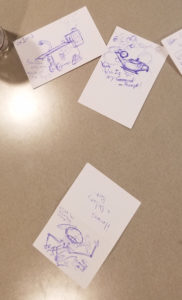[Last updated 2023-08-24]
My friend Jeff Stormer recently remarked that there appeared to be no tarot deck options ready-made for PlayingCards.io, so I decided to throw one together using public domain parts. If you're already familiar with how the site works, you can download the PCIO file here. If you're new to PlayingCards.io, read on!
How to Use
Follow the steps below to get started:
- Download this .pcio file to your computer.
- Point your browser to PlayingCards.io and and create a new room by going to the Games page and choosing the "Other / Custom" option.
- Once in the room, enter "Edit Mode" by clicking the suitcase icon in the upper left.
- Expand the edit panel at the bottom of the screen, switch to the "Room Options" tab, click "Import From File," and upload the file that you downloaded above.
This file will create three example tarot decks: (1) a complete deck, (2) a deck of major arcana (trumps) only, and (3) a deck of minor arcana (suits) only. While still in "Edit Mode, you can remove the deck(s) you don't need. Once you're ready to try the decks out, switch back to "Table Mode" by clicking the suitcase in the upper left again.
If you want to customize the decks with new front graphics, the CSV files I used to construct the decks are:
To change the card fronts, edit the CSV files above and use them to create new decks in PlayingCards.io. To change the card backs, edit the deck template in PlayingCards.io. This post isn't going to be a whole guide to customizing PlayingCards.io, but if you need a boost in that direction, you can start with the site's own documentation.
Enjoy!
Sources
The graphics for the front images are from the Rider-Waite-Smith "Popular 1910" deck that I grabbed from this site; there are a lot more options avaiable! The card back is the back of the "Pamela-A" deck as sourced from the Internet Sacred Text Archive. Both sources are in the public domain.

